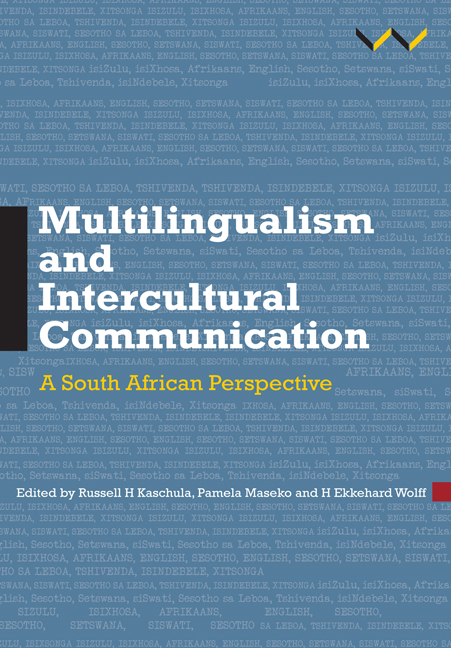Book contents
- Frontmatter
- Contents
- Tables and figures
- Preface
- Abbreviations and acronyms
- Central terms and concepts
- Introduction
- Prologue: The essentialist paradox in intellectual discourse on African languages
- Part One African language empowerment: concept formation and intellectualisation
- Part Two Language planning, terminology development and dictionaries
- Part Three Language in education
- Part Four Language in the professions: law, media, science and language technology
- Part Five Language, culture and intercultural communication
- 15 Language policy in South Africa through the Sapir-Whorf ‘looking glasses’
- 16 Language, intercultural communication and literature
- 17 Music, literature and multilingualism in the East Cape Opera Company
- 18 Beyond language: German Studies in a South African university context
- Acknowledgements
- Contributors
- Index
17 - Music, literature and multilingualism in the East Cape Opera Company
from Part Five - Language, culture and intercultural communication
Published online by Cambridge University Press: 23 March 2018
- Frontmatter
- Contents
- Tables and figures
- Preface
- Abbreviations and acronyms
- Central terms and concepts
- Introduction
- Prologue: The essentialist paradox in intellectual discourse on African languages
- Part One African language empowerment: concept formation and intellectualisation
- Part Two Language planning, terminology development and dictionaries
- Part Three Language in education
- Part Four Language in the professions: law, media, science and language technology
- Part Five Language, culture and intercultural communication
- 15 Language policy in South Africa through the Sapir-Whorf ‘looking glasses’
- 16 Language, intercultural communication and literature
- 17 Music, literature and multilingualism in the East Cape Opera Company
- 18 Beyond language: German Studies in a South African university context
- Acknowledgements
- Contributors
- Index
Summary
The East Cape Opera Company was founded by Gwyneth Lloyd in 1995 and has performed in various Eastern Cape venues and festivals as well as conducting a tour of the Netherlands. The Company has performed well-known operas and operettas such as Mozart's The Magic Flute and Gilbert and Sullivan's The Mikado, as well as their own original isiXhosa operas such as Temba and Seliba, The Moon Prince – Inkosana Yenyanga and The Clay Flute.
This chapter is situated within the context of the apartheid and post-apartheid eras, and an emerging post-1994 South African operatic culture that embraces multiculturalism. The chapter explores intercultural communication in relation to isiXhosa opera and examines the linguistic and dramatic characteristics of the construction of these operas, as well as how African cultural practices (dramatic and musical) are integrated within an essentially Western art form in the multilingual ‘rainbow nation’.
The chapter makes use of intercultural and literary theory as a point of departure to analyse not only the literary qualities of the isiXhosa operas performed by the East Cape Opera Company, but it also shows how these operas reflect an emerging intercultural reality within the South African context. The chapter explores how the mixing of genres, including African genres such as the folktale and oral poetry as part of opera, and the mixing of languages allows for the successful development of African opera.
Analysing intercultural aspects in The Clay Flute
This section analyses mainly the amaXhosa culture, and explores the relationship between African and Western cultures by looking into the heart of the story – the theme – in The Clay Flute: the relationship of the amaXhosa people with their ancestors.
The composer's musical biography is briefly explored, including his connection to South Africa. This information is important as it helps to identify and trace any influences from his personal experiences on his composition. In the remainder of this section, thematic issues at the core of The Clay Flute are analysed.
- Type
- Chapter
- Information
- Multilingualism and Intercultural CommunicationA South African perspective, pp. 313 - 322Publisher: Wits University PressPrint publication year: 2017



